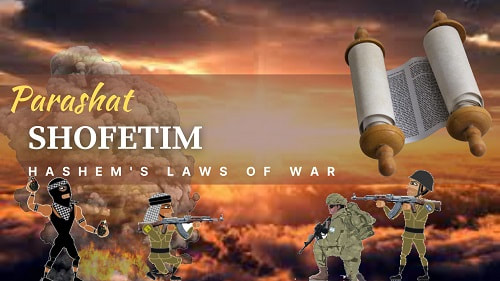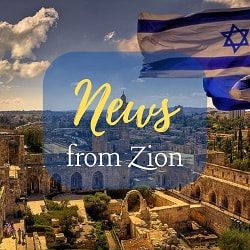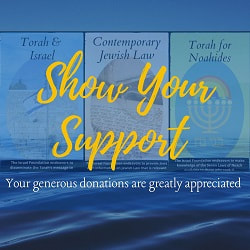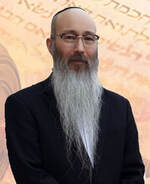|
By: HaRav Menashe Sasson Reporting from Jerusalem, Israel Published in the U.S.A. The Torah commands:
Debarim 20:1-4. There are at least two important messages in these pesukim. The first is that if the Jewish people have “bitahon” [ביטחון] (trust in G-d) and if they perform “hishtadlut” [השתדלות] (exertion of human effort), HaShem will go “with [the Jewish people], to fight for [the Jewish people] with [their] enemies, to save [them].” We saw, in 1948 (War of Independence) and 1967 (Six-Day War) how, when the Jewish people do their part, HaShem responds in kind, just as promised in the Torah. The second is that the Jewish people should treat their enemies as enemies. The pesuk commands: “when you go out against your enemy” (italics added) to emphasize that war is being fought against an enemy, not a friend. The Midrash teaches that the Jewish people should, “Go against them as enemies! Just as they do not have mercy upon you, do not have mercy on them.” Tanchuma, Shofetim 15. In other words, when fighting a war, the Jewish people should fight to win, not show weakness, and should avoid taking half-measures in the mistaken belief that doing so is somehow righteous or effective. The Torah then lists three categories of people who are exempt from the obligation to serve in the military. Those who are exempt include: a man who has built, but not yet resided in, a new house; a man who has planted a vineyard and not redeemed it (in the fourth year, when fruit must be taken to Yerushalayim, or is redeemed and may be eaten for the first time); and a man who has betrothed a woman, but not yet married her. Debarim 20:5-7. Furthermore, as can be inferred from the structure and text of the exemptions, only men have an obligation to serve in the military; women are entirely exempt from military service. The Torah continues:
Debarim 20:10-17. We learn from these pesukim that there are two types of wars. The Torah distinguishes between wars against “all the cities that are very distant from you” and wars against “the cities of these people that HaShem gives” to the Jewish people as an inheritance. The latter category of war is known as a “milhemet misva” [מלחמת מצוה] (a mandatory war, or literally a “misva war” or a war which is a misva to wage). Wars which are included in this category include wars against “the cities of these people that HaShem gives” to the Jewish people, that is, wars against those who occupy Eretz Yisra’el and who claim, or seek to assert, that their legal right to Eretz Yisra’el is superior to that of the Jewish people, and wars against Amalek (defined as people who endeavor to exterminate the Jewish people). Mishneh Torah, Hilhot Melahim u’Milhamotem 5:1. The former category of war is known as “milhemet hareshut [מלחמת הרשות] (an optional war, such as a war which is fought for the purpose of expanding the borders of Eretz Yisra’el or to magnify its greatness and reputation. Id., 5:2. Given that the Torah commands that the Jewish people dispossess, by force of arms, if necessary, those who seek to assert a claim to Erertz Yisra’al which is superior to that of the Jewish people, it follows that the Jewish people should not allow those same people to remain in Eretz Yisra’el. By logical extension, the Torah also forbids allowing those whom it requires be dispossessed of the Land from becoming citizens in the Land, and then potentially becoming a majority instead of a minority, voting to change the character of the government from that of a Jewish state to that of a non-Jewish state, and then subjecting Jews to being ruled in Eretz Yisra’el by the very non-Jews who should have been dispossessed of the Land. Parasha Shofetim concludes with the command regarding an unsolved murder of a Jew:
Debarim 21:1-7. There is not, of course, even the slightest reason to suspect that any of the elders were personally involved in the murder of the innocent Jew whose dead body was found in a field. Nevertheless, the Torah commands the elders to publicly proclaim that they have not spilled the blood of the innocent Jew who was murdered. Why, then, does the Torah require the elders to make a public proclamation denying any involvement in the murder of the innocent Jew? It is because the elders, in their role as political leaders, are responsible for governing Jewish society in accordance with the Torah, so that when, Heaven forbid, an innocent Jew is murdered, the elders, that is, the political leaders, can publicly – and truthfully – proclaim that they did everything within their power to prevent the shedding of innocent Jewish blood. Masekhet Sotah 38b. Today, we see the Israeli government failing, among other things, to exercise sovereignty over the entirety of Medinat Yisra’el (lands within the borders of the State of Israel), to incentivize non-Jewish Arabs to relocate outside of Medinat Yisra’el, and to take meaningful action against Arab terrorists who murder innocent Jews. May HaShem bless the Jewish people to merit the acquisition of leaders who possess “Yirat Shamayim” [יראת שמים] (fear of Heaven) and “bitahon” [ביטחון] (trust in G-d) and who will govern Medinat Yisra’el in accordance with the Torah. שבת שלום Shabbat Shalom! Copyright © The Israel Foundation. All Rights Reserved.
0 Comments
Your comment will be posted after it is approved.
Leave a Reply. |
THE ISRAEL FOUNDATION





